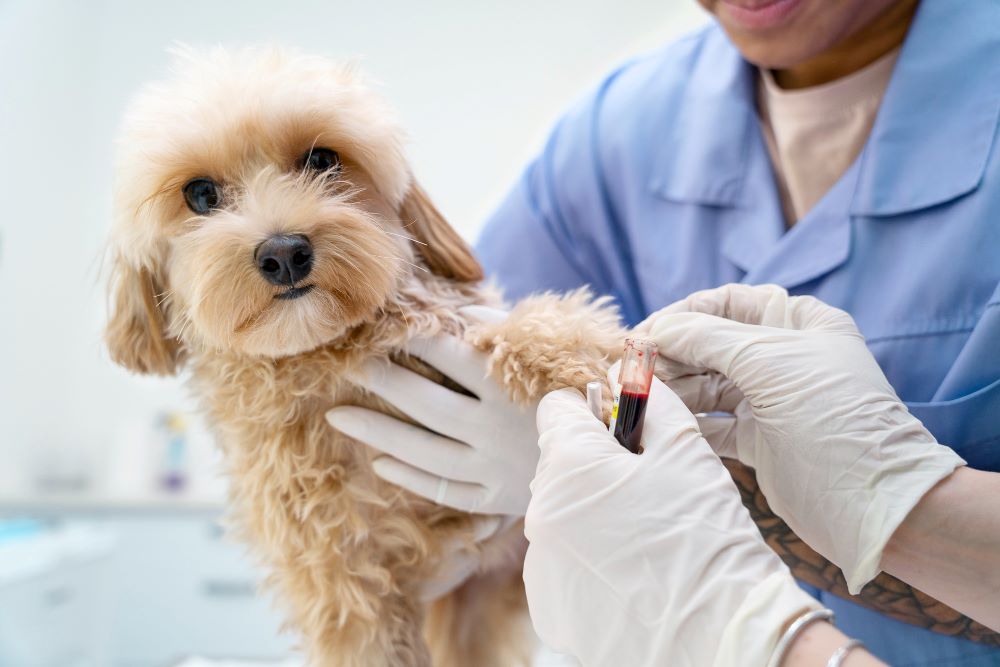While you must vaccinate your dog against some diseases and may want your pet vaccinated against others, vaccines can be costly – and come with side effects. The benefits of dog vaccinations far outweigh the risks, but a careful assessment of risk factors should be undertaken to establish an appropriate vaccination protocol for each animal.
Recent investigation into the origins of vaccine recommendations for dogs revealed no basis in scientific data, nor duration of immunity studies. With the exception of rabies, vaccinations aren’t legally required and are subject to debate. Recent studies support the belief that vaccines provide disease immunity for several years.
Annual boosters are not only unnecessary, they may actually be harmful. Increasingly, veterinarians are offering to check vaccination titers rather than routinely administering the annual shot. Seeing a veterinarian yearly for a booster may soon be replaced by an annual physical exam, with recommended dog vaccinations given only at intervals.
Based on the risk of exposure, severity of the disease, or its potential transmissibility to humans, the administration of core vaccines is considered vital, with non-core vaccinations dependent on vulnerability.
Type of Dog Vaccinations

1. Core Dog Vaccinations
Recommended or required by state law because they protect against prevalent, life-threatening, or zoonotic diseases such as rabies.
- Parvovirus
- Distemper
- Adenovirus-2
- Rabies
2. Non-Core Dog Vaccinations
Optional, recommended according to an animal’s risk of exposure and lifestyle considerations.
- Parainfluenza virus
- Bordetella (kennel cough)
- Leptospira
- Lyme disease
3. Not Generally Recommended
Of limited benefit and may cause adverse events.
- Coronavirus
- Giardia
- Adenovirus-1
- Rattlesnake venom
Source: University of California, Davis, Center for Companion Animal Health
Although rabies has been eradicated in domestic animals, most states require dogs to be vaccinated against it. The vaccine is an absolute requirement of international law. Each state (and country)has its own legislation governing rabies vaccine administration. Some require annual rabies vaccination. Others require vaccines every three years. But everywhere, proof of rabies vaccination is mandatory.
UC Davis School of Veterinary Medicine suggests that young dogs receive a booster after a year, and further vaccinations every three years. Laws vary, so be sure to follow your local requirements.
Rabies is the only vaccine required by law. But it is not the only core vaccine. According to UC Davis Veterinary Medicine, shots protecting against canine Parvovirus, distemper virus, adenovirus type 2, and hepatitis are strongly recommended. Puppies should receive a dose of modified live virus vaccine every three to four weeks, from six to eight weeks of age, with a final booster at 16 weeks. It is important for puppies to improve their lifespan.
For dogs over 16 weeks old, UC Davis recommends that your veterinarian administers two doses of a modified live virus vaccine, three to four weeks apart. Your pet should be given a booster after a year, and vaccination every three years.
Non-core canine vaccines are optional. Administration depends on your lifestyle and geographic location. Pay attention to epidemics in your area. Be mindful, however, not to inoculate your dog with unnecessary vaccines, since some can cause side effects. If you need to board your dog, it must be vaccinated against canine parainfluenza virus and Bordetella bronchiseptica.
Should You Titer Test?
With veterinarians recommending core vaccinations every three years, plus numerous non-core vaccinations, inoculation can be hard on both your wallet and your dog. The solution is a titer test. This lab test examines your dog’s antibodies to determine precisely which vaccinations are required. Titer testing is not cheap; however, you need only to do it once. Most recommend a test that examines antibodies for canine parvovirus, plus distemper.
Final Note
Maintaining dog vaccinations properly is key to dog care. Core vaccines (like rabies and parvovirus) are essential and adapted to individual needs. Non-core shots are optional, based on lifestyle and location, minimizing unnecessary jabs. Testing for titers ensures accurate immunity assessments, allowing for smart vaccination choices. With the help of vets, pet owners can ensure their dogs’ well-being in a cost-effective and safe manner.

Leave A Comment